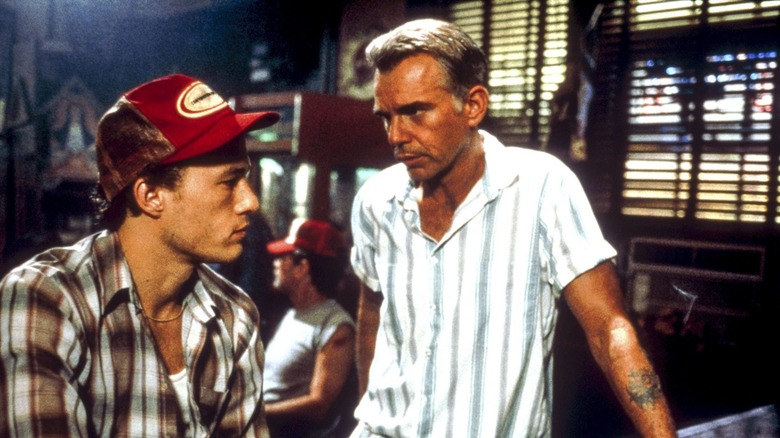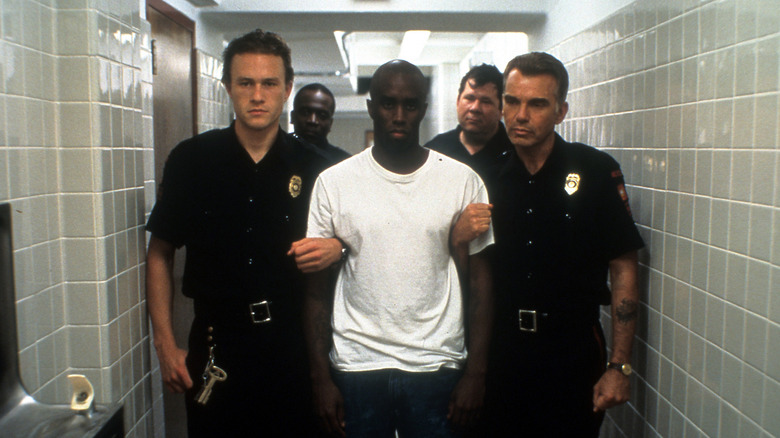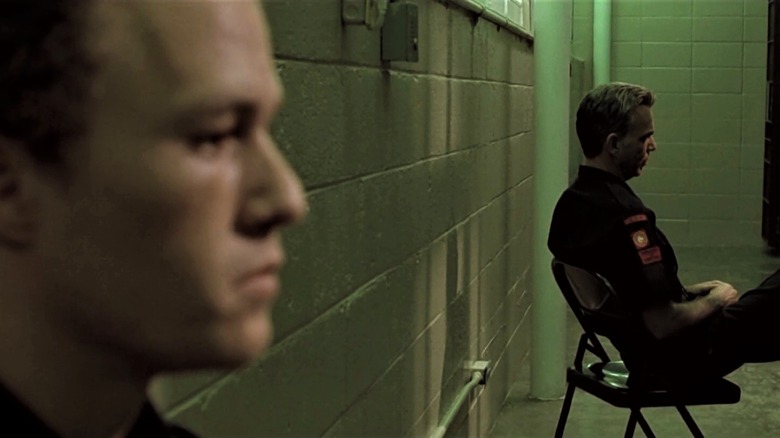Getting Beat Up By Billy Bob Thornton Helped Heath Ledger With His Monster's Ball Role
Heath Ledger's commitment to his craft was legendary. He plunged deep into his characters, oftentimes to a startling degree. It's astonishing that a man capable of conveying the bottled-up romantic anguish of Ennis Del Mar in "Brokeback Mountain" could turn around and summon up the frighteningly singular psychosis of The Joker in "The Dark Knight." Such immersion occasionally comes at a cost. When you're accessing these kinds of heightened emotions, it can be difficult to cut the umbilical when the shoot is over. If the writing was true and the production handled by a capable director, a piece of this character will always be with you. And the scarring isn't strictly mental. Sometimes, you leave a movie with some physical bumps and bruises.
If Ledger didn't know this when he made "Monster's Ball" in 2001, he learned it but good from his co-star Billy Bob Thornton.
I was hitting him pretty hard
"Monster's Ball" is a sharp-edged, borderline cruel drama in which a corrections officer (Thornton) in charge of overseeing executions drives his kind-hearted son (Ledger), who's inexplicably opted to follow his father's footsteps, to suicide. Their already fractured relationship completely shatters when Ledger vomits while leading a condemned man to the electric chair. Having failed at his solemn duty, Thornton flies into a rage and assaults Ledger in the restroom. If it looks like Thornton is really laying into Ledger in the scene, it's because he is.
In an interview with PeopleTV's Couch Surfing, Thornton revealed that Ledger asked him to hit him for real. Before following through on his co-star's request, Thornton gave the young actor an out. "I said, 'Now listen, I'm a little more of a veteran than you. When I was a young actor I used to ask people to hit me and it hurts.' I said, 'I'll do it if you want me to,' and he said, 'Please.' He said he needed it. And I was hitting him pretty hard."
Suffering for your craft
This isn't an uncommon occurrence on film sets, though the real violence generally goes down while shooting an adrenalized fight scene (e.g. Dolph Lundgren put Sylvester Stallone in the hospital during the filming of "Rocky IV"). What Ledger was after in "Monster's Ball" was the activation of his character's despair, which is important because this confrontation leads directly to his suicide. Thornton obliged, and, aside from the flush punch he lands on Ledger's kisser (which is cheated with a well-timed cut), he's definitely knocking his co-star around. If this is what Ledger needed to pull off his final scene in the film, a few Thornton-induced bruises were well worth it.


